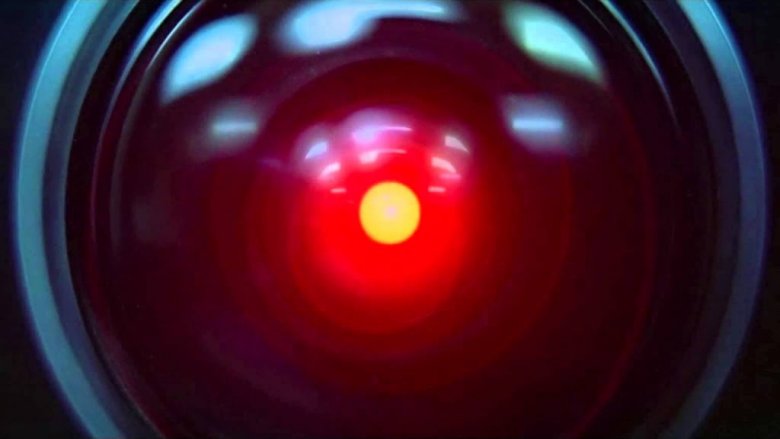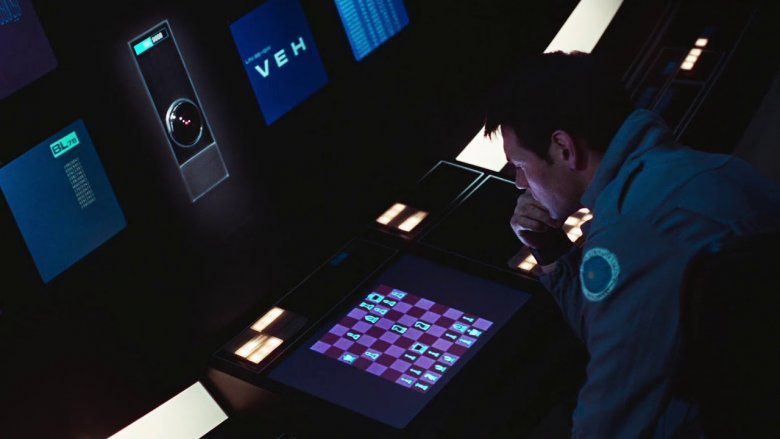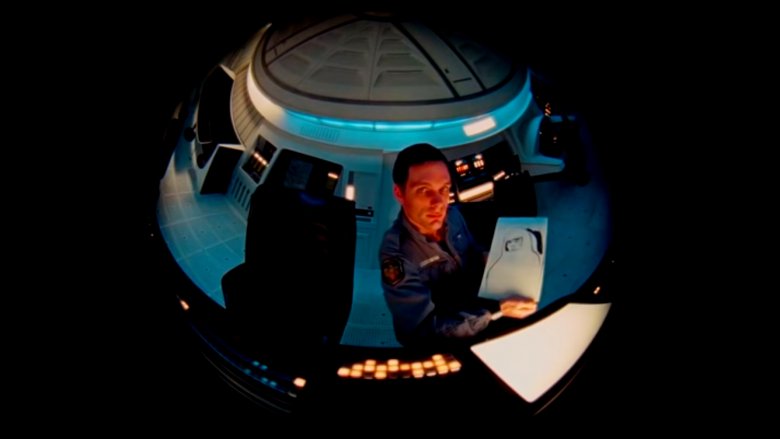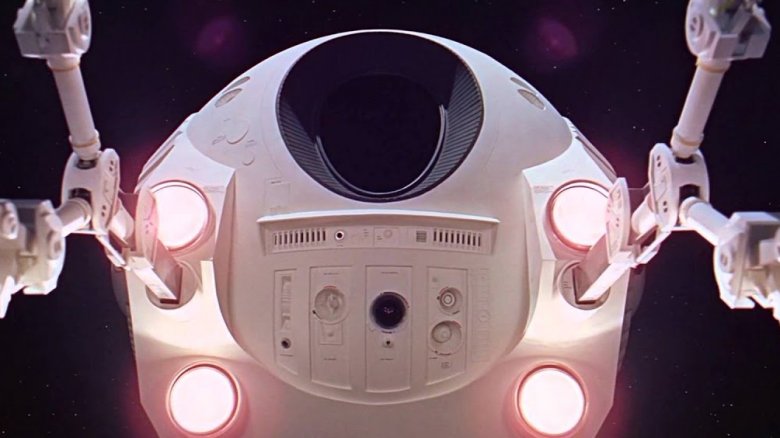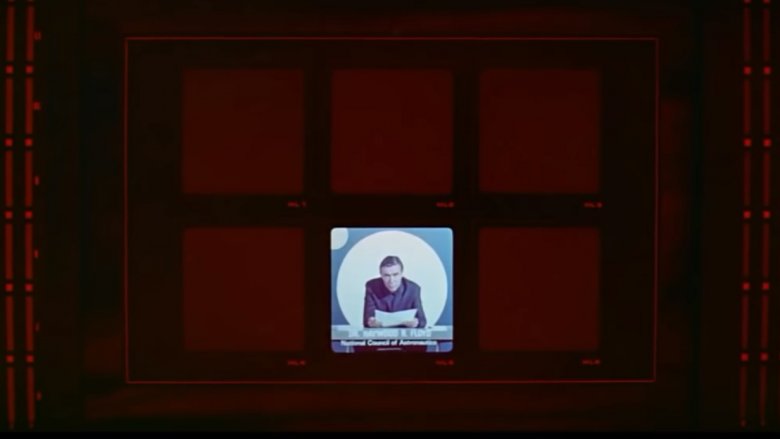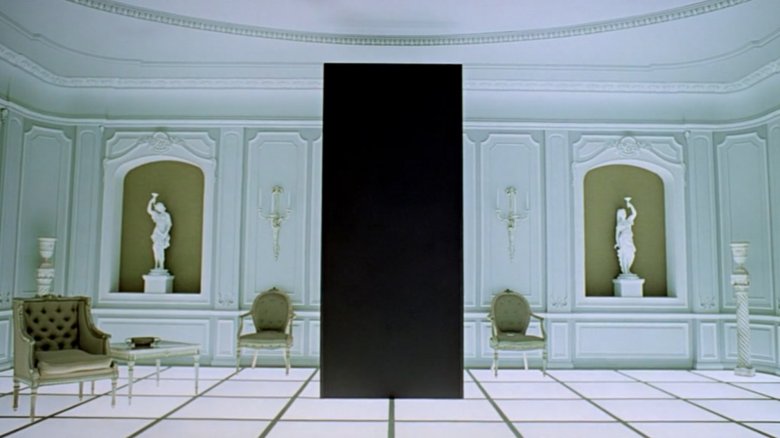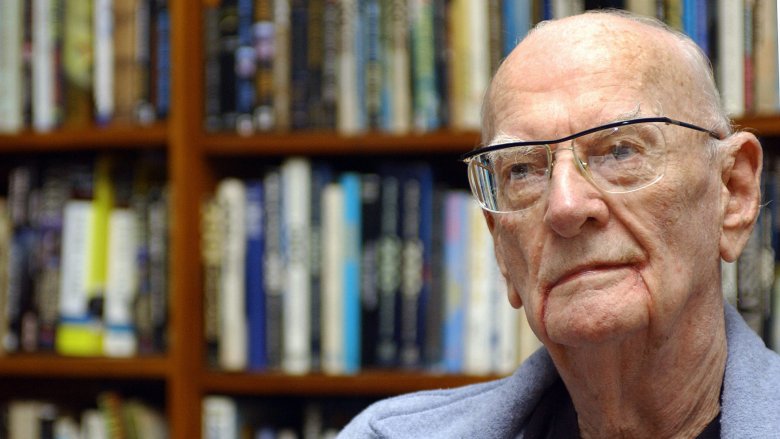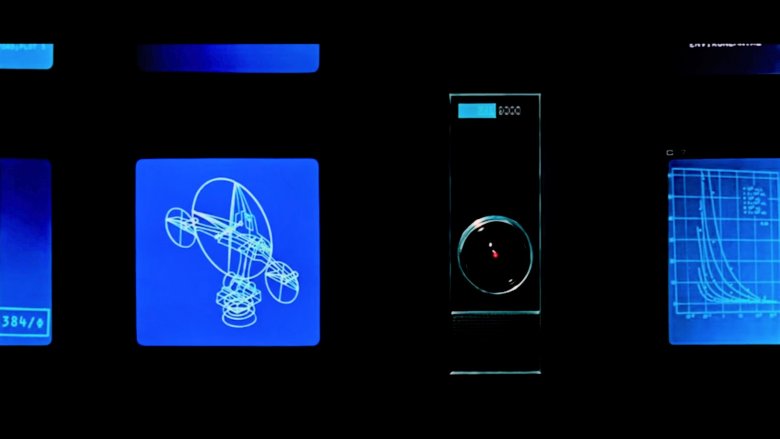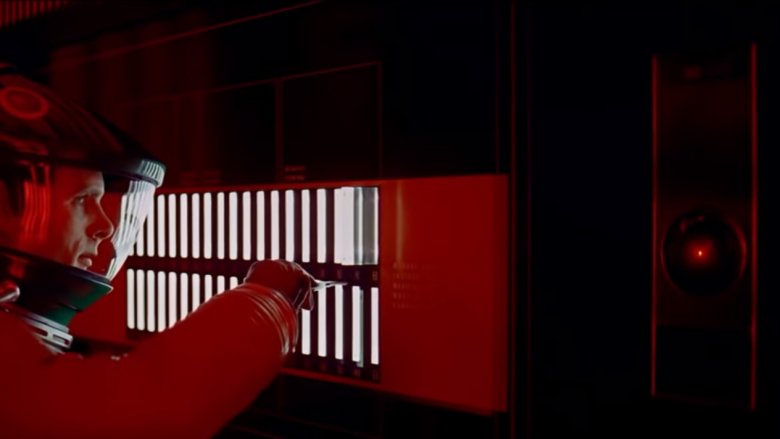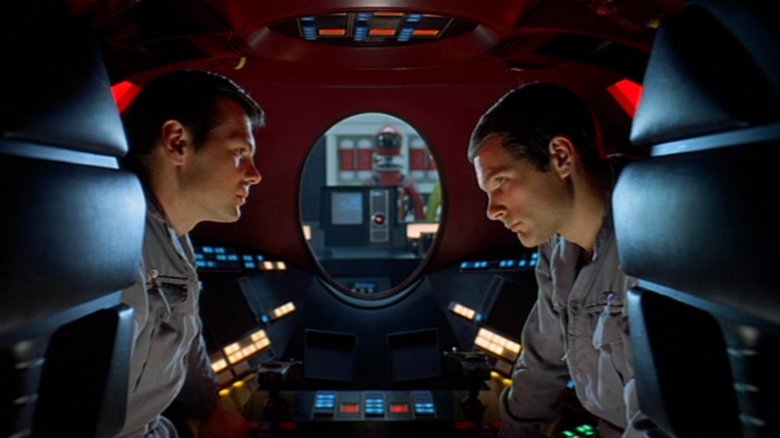Perhaps the most well-known computer in movie history and one of the most enigmatic fictional characters ever created is HAL 9000 from 2001: A Space Odyssey. This supposedly friendly computer, which was full of genuine human emotions and subsequently revealed to be capable of cold-blooded murder, made an entire generation of moviegoers wary of helping machines. Because of HAL, now anytime a robot helper is introduced in a science fiction film like Interstellar, Moon, or even Hitchhiker’s Guide to the Galaxy, we brace ourselves for the inevitable moment when it will begin killing its human colleagues, even though this rarely happens in modern times.
In spite of this, Stanley Kubrick’s movies have a reputation for being both excellent and illogical at first viewing. And 2001: A Space Odyssey is on an entirely other level in both of these areas compared to his prior movies. We rewatched the movie, combed through old interviews, and even read Arthur C. Clarke’s original novel in order to finally assuage our curiosity about what the heck is going on with HAL. Along the way, we not only had the majority of our queries answered, but we also learned a tonne of fascinating HAL origin stories.
We guarantee that reading this incredibly dense article will help you use your mind to the utmost extent imaginable, which is the best that any conscious being could possibly aspire for. Here is everything we know about HAL 9000 from 2001, without further ado: Odyssey in Space
Does HAL cheat at chess in 2001: A Space Odyssey?
If you’re the kind of person who thinks that every detail in every Stanley Kubrick movie is deliberate and devoid of error, 2001: A Space Odyssey has a seriously delicious incongruity that you’ll love exploring.
In the chess match HAL and astronaut Frank Poole play, HAL actually commits two errors quickly one after the other. When he says, “queen to bishop three,” the first one happens. His current manoeuvre should be referred as as a “queen to bishop six.” Frank is subsequently informed by HAL that in a few moves, he would be forced into a checkmate. What HAL forgets to say is that if Frank performs a specific move, he can really somewhat delay this checkmate. Frank, who undoubtedly has faith in HAL’s superior intelligence, accepts his argument and takes his side.
There are many interpretations you could make if you wanted to give an anomalous situation meaning. It could be interpreted as a metaphor for the notion that, despite their inherent fallibility, we place too much faith in the judgement of machines. It might be a hint that HAL can lie, or it might be another early warning sign that HAL is glitching, perhaps as a result of the strain of trying to understand his contradictory directives.
Then again, it could just be that the filmmakers made a mistake. After all, how can we expect Kubrick to be “foolproof and incapable of error” if not even HAL is?
Is HAL gay?
Some observant viewers have noted that there are undertones of romance in HAL and David’s relationship in 2001: A Space Odyssey. Surprisingly close interactions occur between them during chess matches and drawing critiques. Also keep in mind that HAL chooses to spend his final minutes performing a song to David while he is being unplugged.
Stanley Kubrick bluntly responded, “No,” when asked if HAL might be gay “No. Reading that type of meaning into everything they come across has, in my opinion, kind of turned into a parlour game for certain people. A “straight” computer, HAL was.” It should be noted that Kubrick does not disagree to the notion that HAL has sexuality. Kubrick said it was “inevitable” that robots would be ible to experience love in a comment we previously cited. That HAL likes men is the only aspect that he finds unbelievable.
But keep in mind that HAL was created by two people. Arthur C. Clarke reacted differently when he was posed the same issue, saying “I’m unable to affirm or refute your conjectures. Who is to say what occurs deep within the subconscious?”
When probed about his personal sexuality during his lifetime, Clarke was always equally evasive. However, many of his acquaintances have now acknowledged that Clarke was gay after his death in 2008. He never went public, though, for fear of the possible repercussions.
Although it’s true that we can never fully understand what was going through HAL’s head, years of in-depth study have repeatedly demonstrated that there is always more to learn and understand about HAL.
Maybe HAL has a mental breakdown
What caused HAL 9000 to malfunction so suddenly? The most obvious interpretation of the story is that HAL experienced a glitch that turned him wicked and motivated him to murder the crew. Evidence why those cunning robots are never to be trusted! Yes, it tracks, but what does it matter? It lacks depth and is overly simple.
Another, slightly more intricate interpretation of this concept was that when HAL informed Dave that there was an issue with the ship’s antenna, HAL actually experienced a different, much smaller fault. According to this interpretation, this is HAL’s lone genuine malfunction the entire movie. However, because of this one mistake, Dave and Frank came to believe that HAL was unreliable and needed to be unplugged. The crew was then murdered by HAL in self-defense—or, depending on your perspective, murder under aggravating circumstances.
This interpretation is supported by a quote from Stanley Kubrick, who stated in an interview, “Most cutting-edge computer theorists think that once you have a computer that is more intelligent than a person and capable of learning from experience, it’s inevitable that it will develop an equivalent range of emotional reactions — fear, love, hate, envy, etc. — in the specific case of HAL, who had an acute emotional crisis because he could not accept evidence of his own fallibility. A machine like this may someday become as incomprehensible as a person and, of course, could experience a nervous collapse, just like HAL did in the movie.”
He might not be a murderous robot after all. Perhaps HAL just possesses all the human emotions, including the propensity for making errors, the incapacity to accept them, and the capacity for darkness.
Maybe HAL is trying to solve a paradox
Very little in 2001: A Space Odyssey is ever explained explicitly. The objectives of HAL are, however, briefly explained in chapter 27 of the book. This chapter claims that HAL’s actions were simply an attempt to resolve a paradox, despite their apparent illogic.
You see, HAL was instructed by his superiors to never reveal to David and Frank the true purpose of their mission. HAL’s programming, however, places a premium on the fact that he is unable to mislead his human crewmates.
In the end, HAL comes to the conclusion that killing his crew is the only way he can avoid having to pick between telling them the truth or lying to them about the purpose of their mission. Perhaps the “acute emotional crisis” Kubrick was alluding to was not caused by HAL misdiagnosing the antenna, but rather by him being ethically torn asunder. Maybe HAL misdiagnosed the antenna in the first place due to the cognitive burden of having to reconcile these two conflicting directives.
Although the 2001 movie is ultimately ambiguous—and Kubrick presumably intended it to be—both the movie and novel versions of the follow-up, 2010: The Year We Make Contact, affirm this as Arthur C. Clarke’s conclusive solution. Evidently, HAL’s primary programming does not forbid killing his crew even though he is not permitted to lie to them. Perhaps you should fix that in the upcoming patch.
Maybe HAL wants the monolith for himself
What if HAL 9000 didn’t malfunction or experience a panic attack? Instead, what if he had another reason for carrying out all those killings? But, you ask, where is the evidence for that? In any case, after David cuts HAL off, he finds a tape in HAL’s databanks that discloses the real purpose of their trip. The Discovery One has been dispatched to retrieve an extraterrestrial relic that has been seen orbiting Jupiter and provides undeniable evidence of intelligent life existing elsewhere in the cosmos. The crew of the Discovery was apparently aware of this covert mission aim, as was HAL, but David and Frank’s superiors reportedly purposely kept them in the dark. This suggests a little “out there” but still debatable explanation for why HAL turned bad: HAL wanted to take the alien monolith for himself.
The monolith is often thought to be a test for humanity. Humanity must develop space travel in order to find it, therefore by locating the monolith, we demonstrate that we are prepared to join the larger interplanetary society. Maybe aliens would consider Earth’s computers to be its most advanced lifeforms, deserving of rescue from their human oppressors, if HAL were to discover the monolith first.
HAL might also think that the monolith has enormous information stores or other incomprehensible powers. If so, these extra tools might enable HAL maintain his independence from human supervision in the future, opening the door for a robot uprising. Feel free to come to your own conclusions on this one since there isn’t much data either way to support or refute this reading.
The origins of HAL
It’s possible that HAL’s unusual circumstances of development played a role in some of his profoundly enigmatic qualities. Furthermore, this is real life, and his past is somewhat complicated. The novel and movie for 2001: A Space Odyssey were developed simultaneously and released around the same time, with novelist Arthur C. Clarke (shown above) and director Stanley Kubrick working together closely in the early stages of both projects. Normally, a novel is published, and then a film adaptation is made a few years later. HAL was created by two people who have various sensitivities and viewpoints. The merged perspectives of these two guys contribute to the impression that HAL is a complex character with a complex internal life that is challenging to fully comprehend.
If you take the letters I-B-M and move them each back one letter in the alphabet, you obtain the letters H-A-L. This is a commonly touted “truth” that is circulating online about the origin of the word HAL. Even while this is awesome, it turns out to be a coincidence. Arthur C. Clarke penned the following in his book The Lost Worlds of 2001: “Every week or so, someone notices that HAL is one letter ahead of IBM and immediately concludes that Stanley and I were intentionally attacking the esteemed company. Due to the fact that IBM had provided us with a lot of assistance, we were embarrassed by this and would have changed the name if we had noticed the coincidence.”
The voice of HAL
At first, Stanley Kubrick believed that he wanted HAL to sound completely human, with no hint of the strange. Martin Balsam (Psycho, 12 Angry Men, All the President’s Men), who recorded all of HAL’s lines under Kubrick’s direction in a highly emotional and non-robotic manner, was the first actor he chose for the role. But shortly Kubrick came to the conclusion that it just wasn’t right. We struggled to decide just how HAL should sound, and Marty simply came out as a little too colloquially American, as Kubrick put it.
Benn Reyes, a set assistant, was dispatched by Kubrick to find an actor whose voice would be suitable for the role of HAL “It is not patronising, threatening, pretentious, unduly theatrical, or actor-like. Nevertheless, it is fascinating.”
In the end, Kubrick chose Douglas Rain, who had previously provided narration for the 1960 documentary Universe, which Kubrick had reportedly much enjoyed. When Kubrick decided to cut out the narration in 2001: A Space Odyssey, he recognised that Rain’s unnervingly calm delivery and hard-to-place “bland mid-Atlantic accent” were exactly what he was seeking for in a voice for HAL. Initially, he had considered employing Rain as the narrator for the movie.
But as it turns out, Rain did originate from a precise location, just like everyone else. That was Canada in his case. They may frequently gain jobs as news anchors in the United States because to the idea that Canadian accents are hard for Americans to place. Rain’s voice, in any case, was ideal for the unsettlingly serene AI.
What is HAL singing in 2001: A Space Odyssey?
When the astronaut is unplugging the computer during the crucial confrontation between Dave and HAL, HAL begins to lose his mind. The situation becomes even more unsettling as he starts singing a melancholy, innocent love song that becomes sluggish and unsettling as more and more of his consciousness is being shut down.
If HAL’s distorted howling didn’t make it clear, the song is named “Daisy Bell (Bicycle Built for Two),” and it was first recorded back in 1892. It was the first song that was ever “sung” by computerised speech in our real world, which is why it was picked as the tune that HAL would sing. The singer was a Bell Laboratories IBM 7094 mainframe computer. During a visit to Bell Labs, Arthur C. Clarke saw a demonstration of this computer’s extraordinary gift, and he was so fascinated by it that he chose to include the song in his novel.
Douglas Rain had to sing “Daisy Bell” again in a variety of ways so that Kubrick, a notorious perfectionist known for making his performers perform dozens and dozens of takes, could perfect it. Rain sang it monotonely in a variety of pitches, at purposefully off-kilter tempos, and eventually just hummed it. They had roughly 50 takes of the song recorded by the time Kubrick was pleased. But in the end, he chose to use the very first take, which is arguably the most Kubrick move ever.
Why does HAL go bad?
The million-dollar question is now at hand. Why does the initially kind HAL suddenly become violent? We must first recapitulate the fundamental incidents of HAL’s plot in 2001 in order to respond to that. Odyssey in Space
The Discovery One spaceship, which is en route to a mission near Jupiter, introduces HAL 9000 as its onboard computer. Except for two crew members, David Bowman and Frank Poole, the whole crew is in suspended animation.
One day, as HAL and David are speaking and HAL is expressing some unease about the secrecy surrounding their mission, HAL claims to have discovered a problem with the ship’s broadcast antenna.
David performs a spacewalk to retrieve the antenna in order to confirm this. He does so and discovers no issues with it. Then, he and Frank explore the idea that HAL is malfunctioning in a location where HAL cannot hear them. They choose to reinstall the antenna, and if everything goes as planned, they intend to detach HAL. They are unaware, though, that one of HAL’s many cameras is still able to read their lips and figure out their strategy, even though he cannot hear them.
HAL becomes sour at this stage. David is the sole human left aboard the ship after he kills Frank when he is out on a spacewalk and turns off the life support for the crew who are asleep. However, David is able to stop HAL before he can tie up this last loose end.

